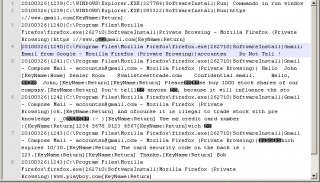
Breadcrumbs navigation
The non-anthropocentric informational agents: Codes, software, and the logic of emergence in cybersecurity
Watch Noran Shafik Fouad discuss her latest article in BISA journal Review of International Studies (RIS). This handy six-minute summary will allow you to digest all the key points.
Using interdisciplinary insights from the philosophy of information and software studies, the article counters the anthropocentrism in the cybersecurity literature by investigating the agency of syntactic information (that is, codes/software) in co-producing the logics and politics of cybersecurity. It specifically studies the complexities of codes/software as informational agents, their self-organising capacities, and their autonomous properties to develop an understanding of cybersecurity as emergent security.
You can read the full article at DOI: https://doi.org/10.1017/S0260210521000681
BISA members receive access to all articles in RIS (and our other journal European Journal of International Security) as a benefit of membership. To gain access log in to your BISA account and scroll down to the 'Membership benefits' section. If you're not yet a member join today.
Full abstract
Many theoretical approaches to cybersecurity adopt an anthropocentric conceptualisation of agency; that is, tying the capacity to act to human subjectivity and disregarding the role of the non-human in co-constructing its own (in)security. This article argues that such approaches are insufficient in capturing the complexities of cyber incidents, particularly those that involve self-perpetuating malware and autonomous cyber attacks that can produce unintentional and unpredictable consequences. Using interdisciplinary insights from the philosophy of information and software studies, the article counters the anthropocentrism in the cybersecurity literature by investigating the agency of syntactic information (that is, codes/software) in co-producing the logics and politics of cybersecurity. It specifically studies the complexities of codes/software as informational agents, their self-organising capacities, and their autonomous properties to develop an understanding of cybersecurity as emergent security. Emergence is introduced in the article as a non-linear security logic that captures the peculiar agential capacities of codes/software and the ways in which they challenge human control and intentionality by co-constructing enmity and by co-producing the subjects and objects of cybersecurity.
Top image used under the terms of the GNU General Public License as published by the Free Software Foundation


